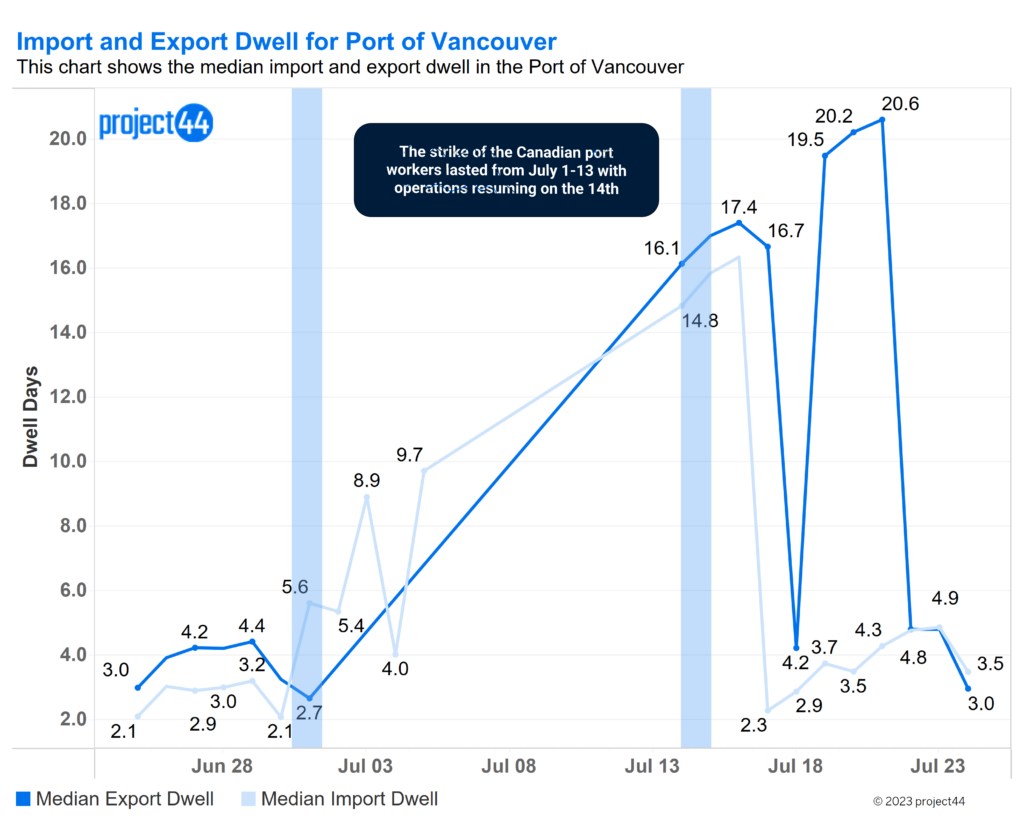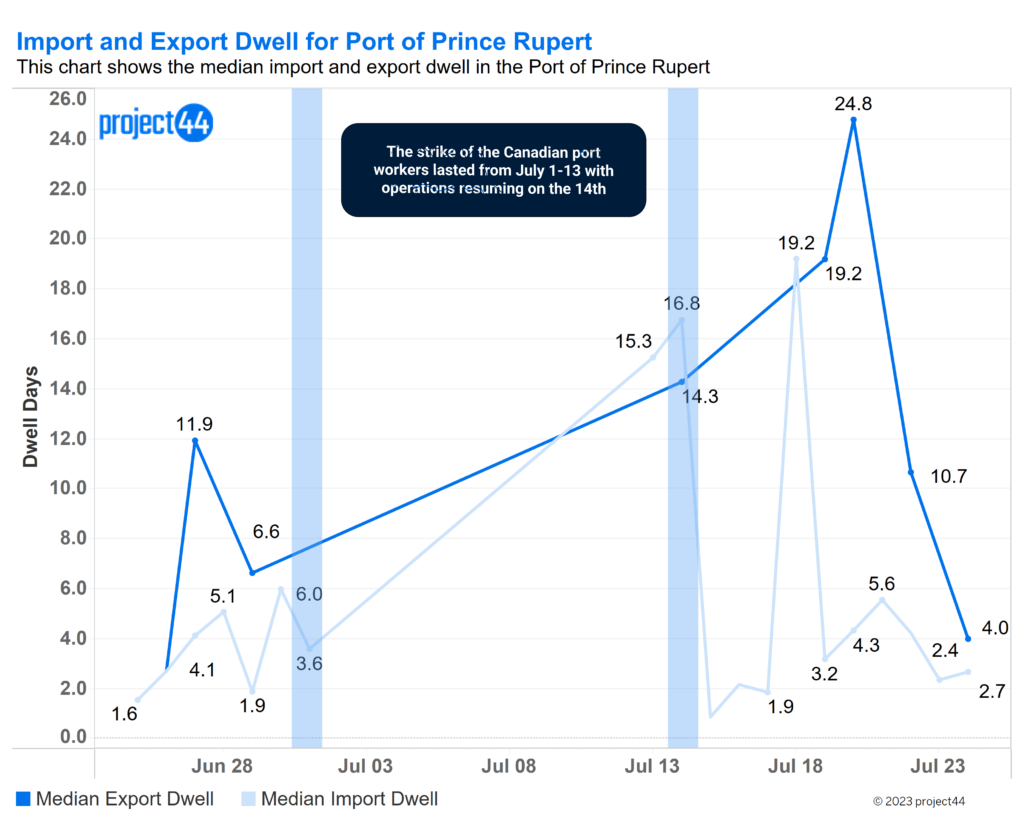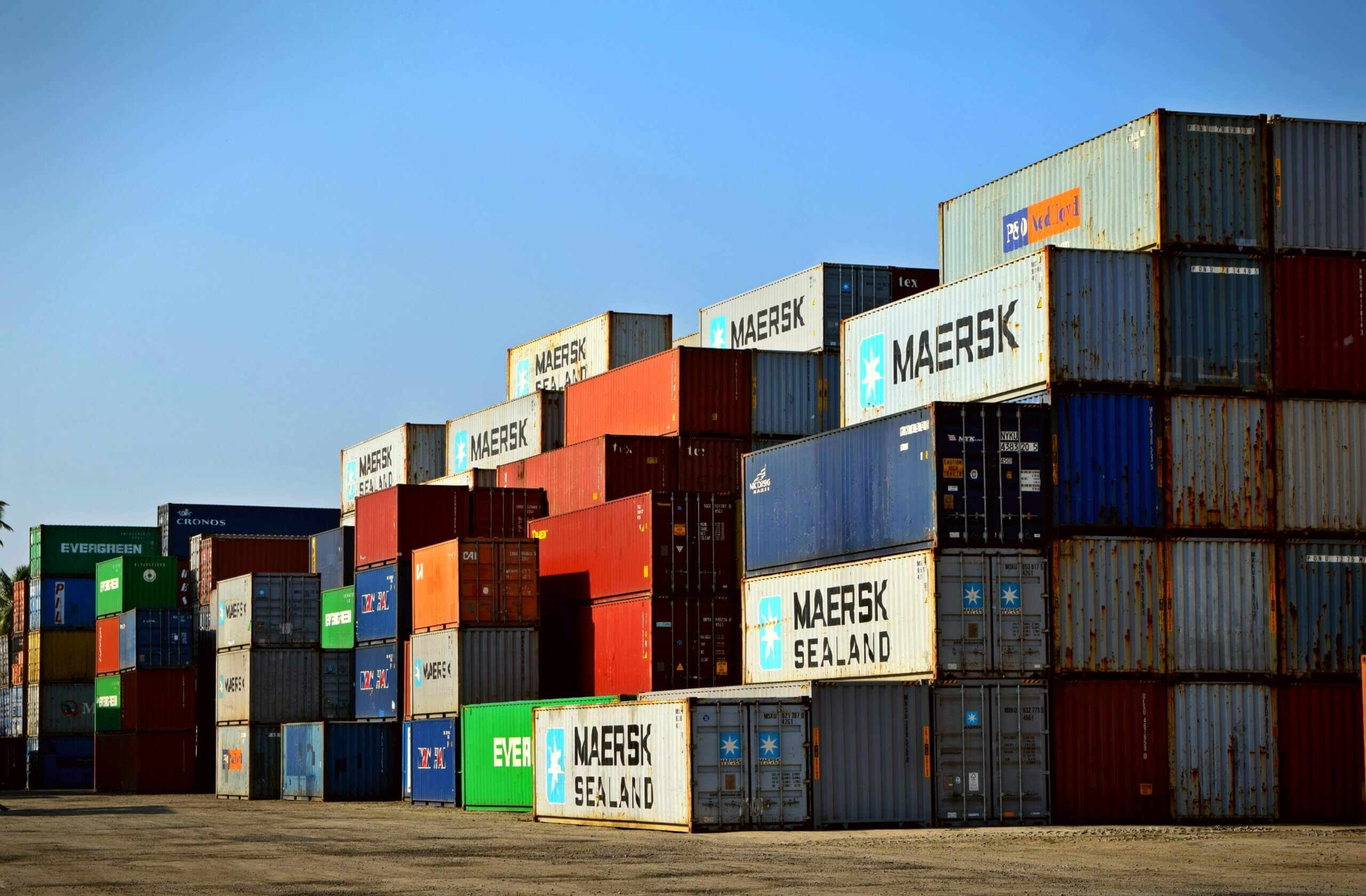Overview
- The Ports of Vancouver and Prince Rupert saw increased dwell times because of the strike but have returned to pre-strike rates suggesting that the backlog has been cleared out.
- ILWU employees are taking the afternoon of the 25th off to review the agreement proposed by BCMEA. Voting should take place this week. There may be a small uptick in dwell due to the afternoon spent reviewing.
- The threat of additional striking still looms until a new agreement is signed.
Body
On July 1st Canadian West port workers began to strike as a result of ongoing labor negotiations. The most impacted ports have been Vancouver and Prince Rupert, which are the #1 and #3 busiest ports in the nation. The strike lasted a full 13 days, and the ports are still seeing impacts on the backlog of containers accumulated during the strike. As of July 25th, there is a tentative agreement for a new 4-year contract between the International Longshore & Warehouse Union (ILWU) and the BC Maritime Employers Association (BCMEA). ILWU employees will be taking the afternoon off to review the contract terms and voting should take place on Thursday or Friday on whether the new deal will be approved.
Container Dwell at the Port of Vancouver and Prince Rupert
The below chart outlines the median dwell for import and exports in the Port of Vancouver. At the Vancouver port, the strike caused import dwell times to increase, with the highest recorded dwell time reaching 16.34 days on July 16th, signifying extended waiting periods for imported goods. Export dwell times at Vancouver were also impacted, with the highest recorded dwell time reaching 20.21 days on July 20th, indicating delays in outbound cargo shipments during the strike period. As of right now, dwell at Vancouver has returned to pre-strike rates.

Likewise, Prince Rupert experienced a return to normalcy after a week of elevated dwell times. Import dwell times surged during the strike, with the highest recorded dwell time reaching 16.76 days on July 14th, causing substantial delays in cargo processing. Export dwell times were also affected, peaking at 24.78 days on July 20th, reflecting delays in outbound shipments.

Summary
The Canadian West port workers’ strike, which lasted for 13 days starting from July 1st, had a significant impact on the busiest ports, Vancouver and Prince Rupert, causing a backlog of containers. However, as of July 25th, there is a hopeful sign of resolution with a tentative agreement for a new 4-year contract between the International Longshore & Warehouse Union (ILWU) and the BC Maritime Employers Association (BCMEA), with voting pending for approval. During the strike, both Vancouver and Prince Rupert ports experienced increased import and export dwell times, with delays reaching up to 20.21 days for outbound cargo shipments, but dwell times have now returned to pre-strike rates at the Vancouver and Prince Rupert ports. There is still potential for future strikes and disruptions depending on the vote results for the proposed contract.
For questions or comments:
press@project44.com



